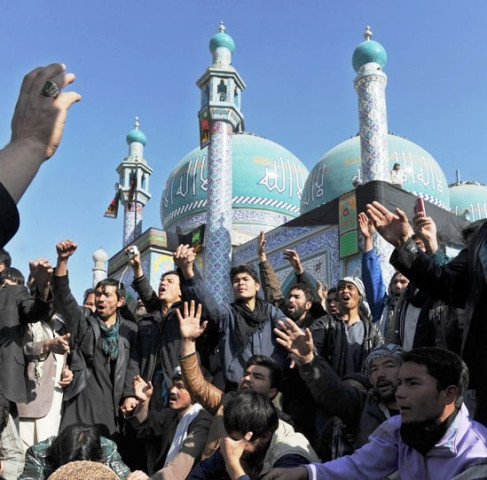Toll from Afghan Ashura killings rises to 84
The twin blasts had prompted fears that Afghanistan could descend into the sort of sectarian violence.

The coordinated attacks struck Shias in Kabul and the northern city of Mazar-i-Sharif on December 6.
The twin blasts prompted fears that Afghanistan could descend into the sort of sectarian violence.
"What we have in our records here is that 80 people were killed in Kabul, including six children and 150 were wounded. Four were killed in Mazar," said Sediq Sediqqui, spokesman for the Afghan interior ministry.
On Sunday, President Hamid Karzai said the toll had climbed to at least 80. A local resident told AFP that bodies and body parts were still being recovered from the river running alongside the Kabul shrine.
Afghanistan lived through civil war from 1992 to 1996. Its different ethnic groups, including Pashtuns, Tajiks, Hazaras and Uzbeks have lived together, sometimes uneasily, since the 2001 US-led invasion.
But US ambassador to Afghanistan, Ryan Crocker, says he does not expect a wave of sectarian violence, pointing to Shia leaders who have called for calm. Shia make up roughly 20 percent of the population.
Karzai blamed Pakistani extremists for the unprecedented attack, threatening to ratchet up tensions with Islamabad, which responded by calling for an end to the "blame game".



















COMMENTS
Comments are moderated and generally will be posted if they are on-topic and not abusive.
For more information, please see our Comments FAQ